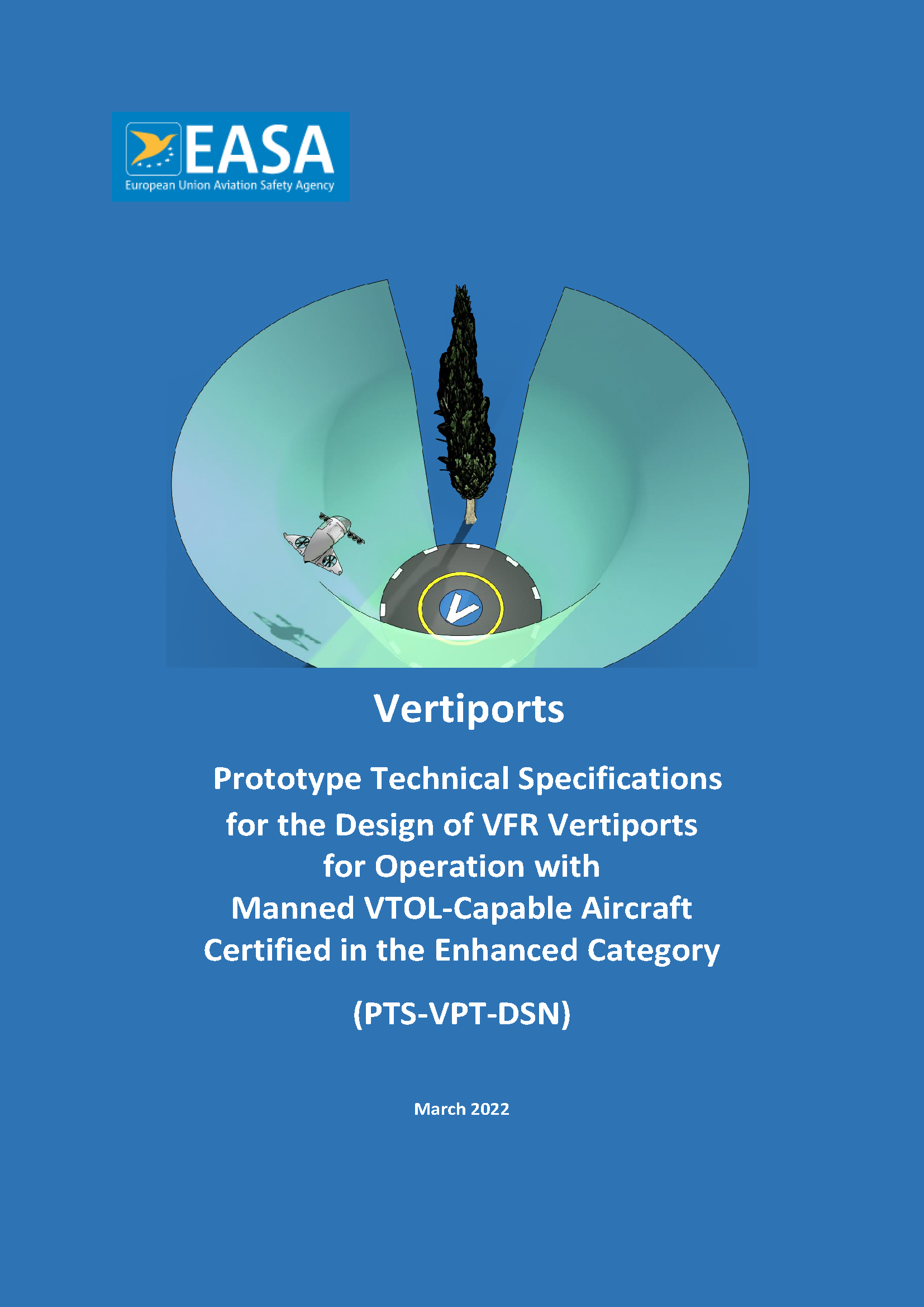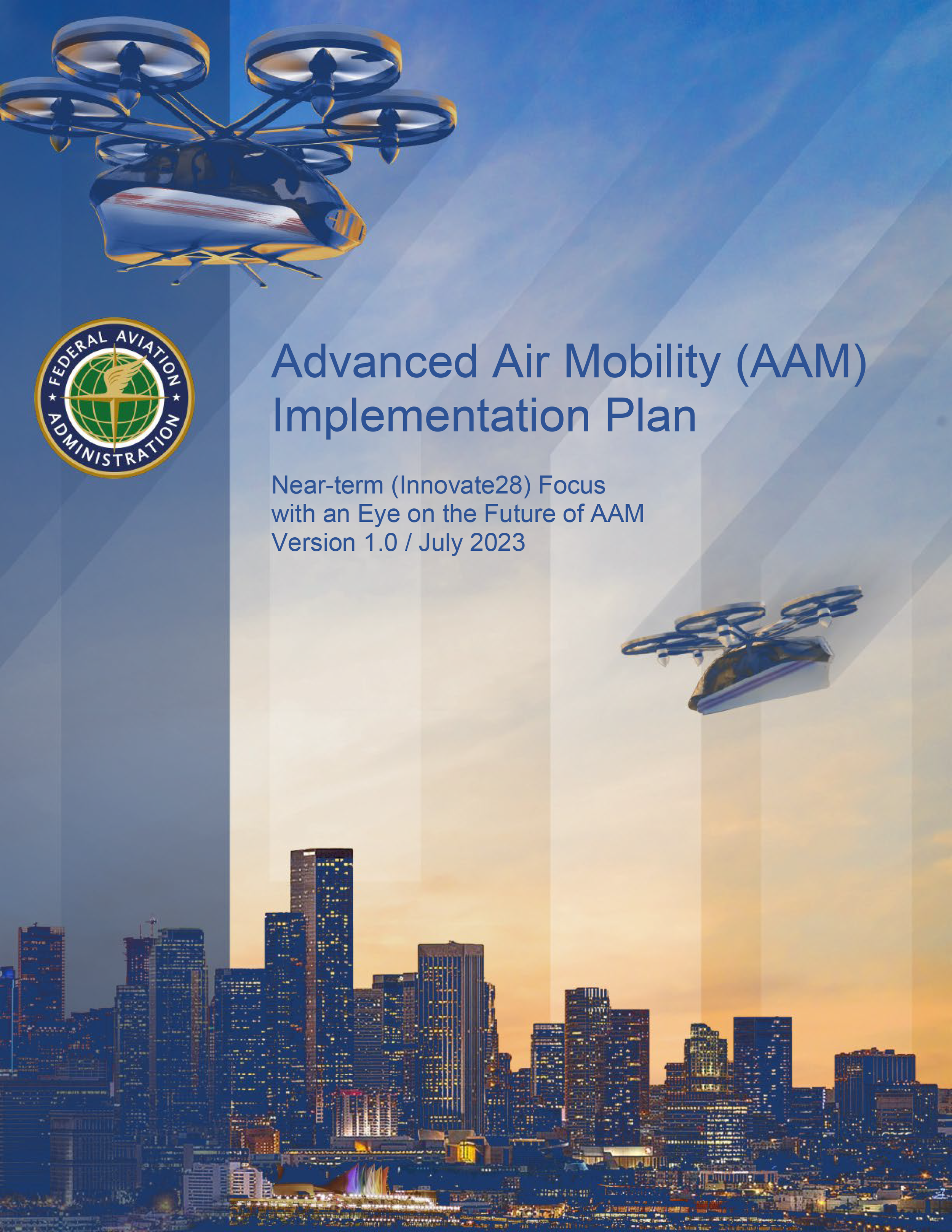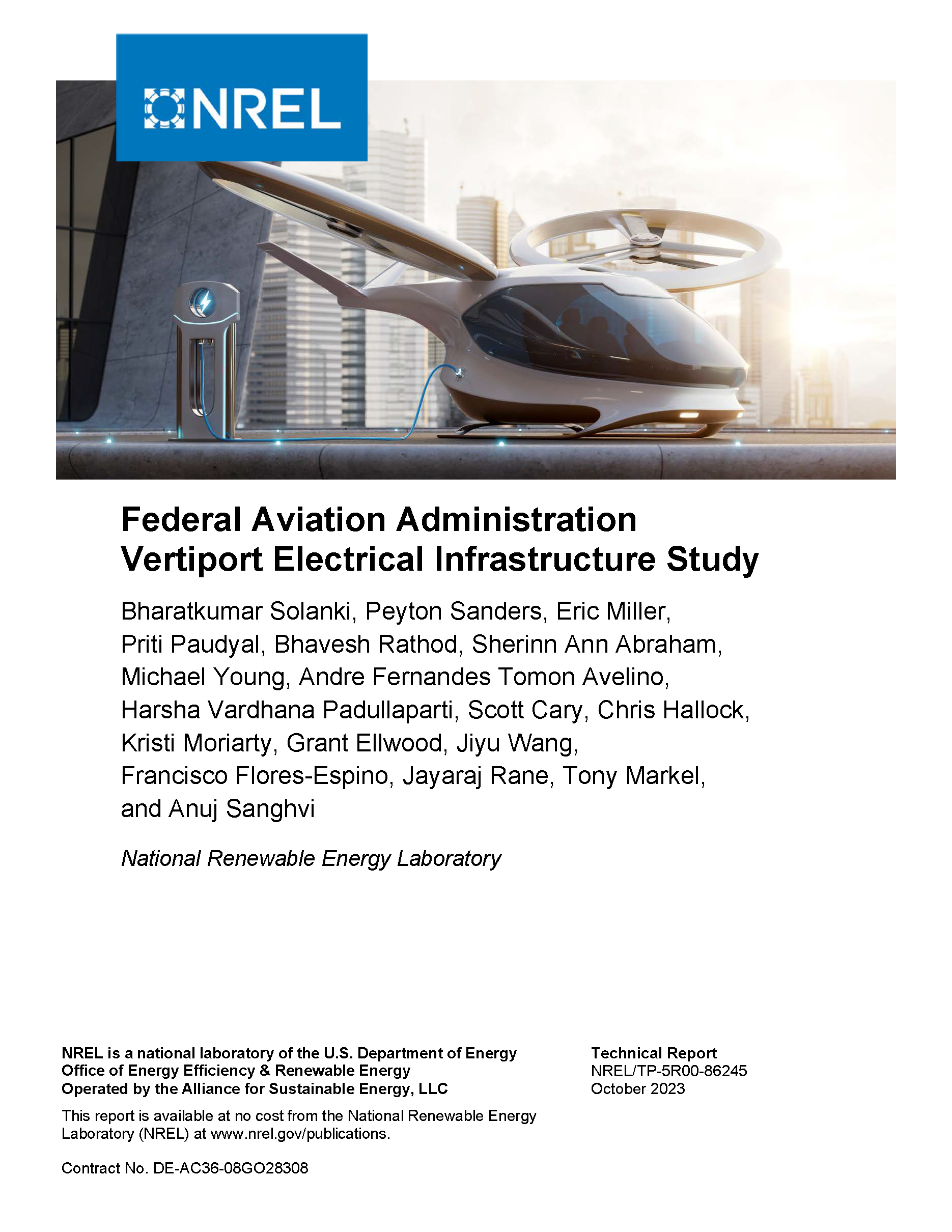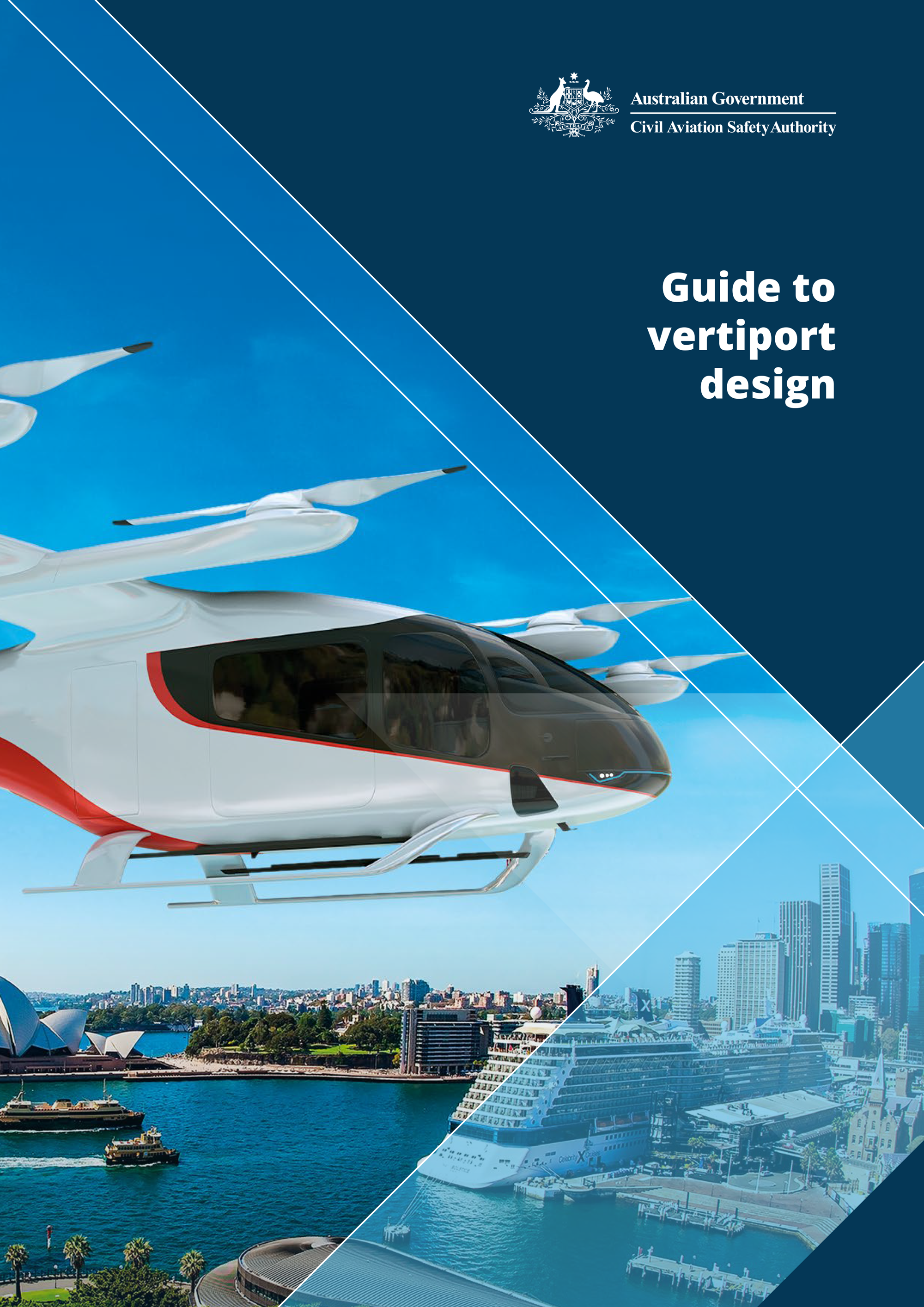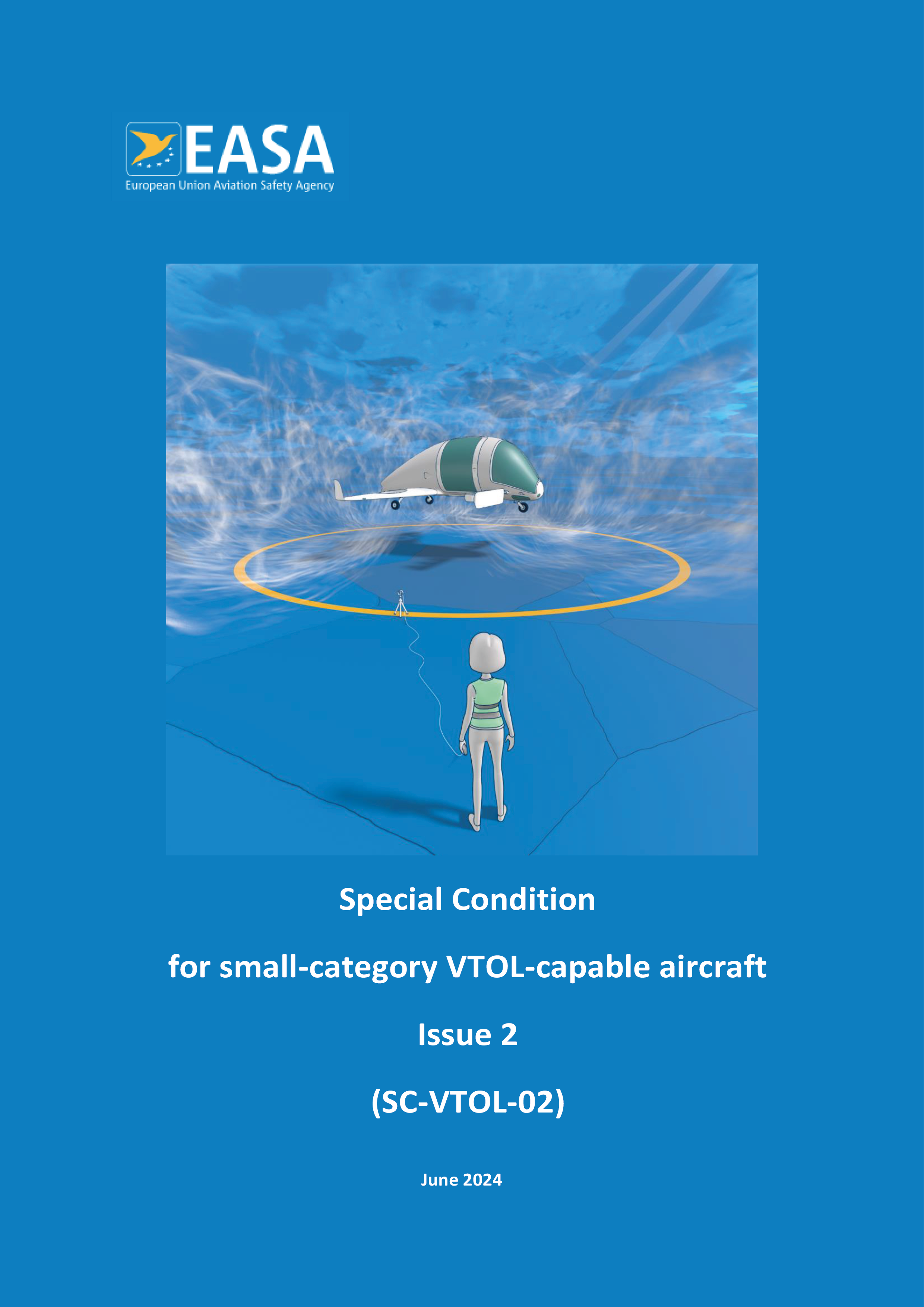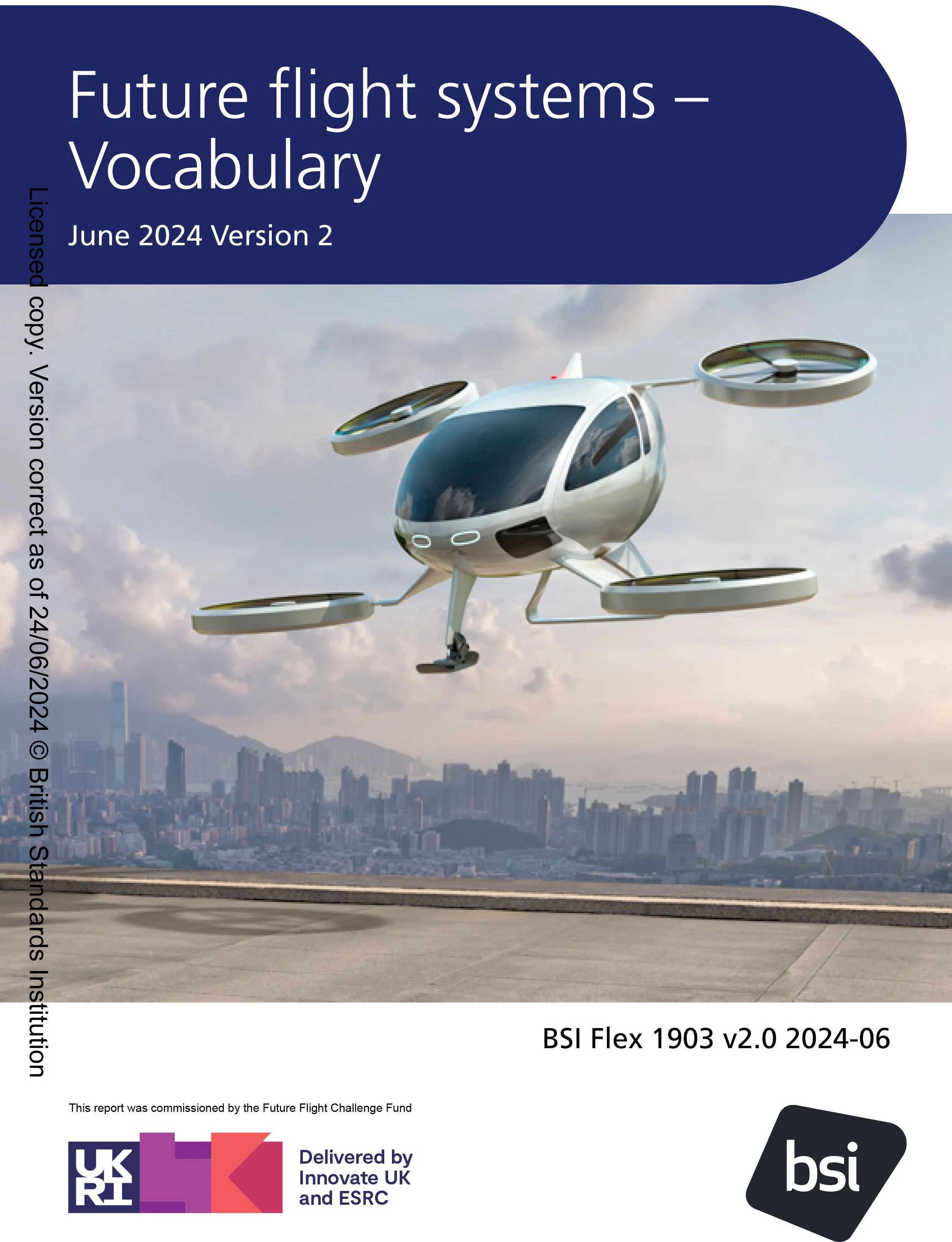
Vertiport Design Guidelines and Standards
On this page, you’ll find resources to vertiport design guidelines, standards and roadmaps which have been published on official websites.
Federal Aviation Administration (FAA)
This Engineering Brief (EB) specifies design guidance for public and private vertiports and vertistops, including modification of existing helicopter and airplane landing facilities, and establishment of new sites.
The National Aeronautics Space Administration (NASA)
The objective of this is to understand barriers to operationalization of vertiports, development of infrastructure requirements needed to increase the scale of operations and maturing of automation technologies.
European Union Aviation Safety Agency (EASA)
This roadmap outlines the expectation that RPAS will have expansive access to lower-level airspace by 2026 and acknowledges the emergence of advanced technologies such as eVTOL and vertiports.
The Civil Aviation Safety Authority (CASA)
This roadmap provides clarity about Australia’s future approach to aviation safety regulation and oversight for RPAS and AAM. It provides a plan for the long-term vision for vertiports supported by acceptable levels of safety.
The Civil Aviation Safety Authority (CASA)
These draft guidelines for vertiport design, is intended to provide guidance and information to people designing and constructing vertiports in support of advanced air mobility (AAM) operations.
The Civil Aviation Safety Authority (CASA)
The CAA have conducted a gap analysis between existing UK regulations for licensed aerodromes and heliports, and vertiport guidance published by other bodies such as EASA, the FAA, and ICAO Annex 14 Volume II.
Federal Aviation Administration (FAA)
This ConOps documents the outcomes of the joint concept development efforts undertaken to date by the FAA NextGen Office with industry stakeholders as well as interagency coordination.
Federal Aviation Administration (FAA)
Innovate28 (I28) is an FAA initiative that will culminate in integrated AAM operations with OEMs and/or operators flying between multiple origins and destinations at one or more locations in the U.S. by 2028.
FAA Vertiport Electrical Infrastructure Study
An understanding of the energy system requirements within and around a vertiport. Original equipment manufacturers (OEMs) data including aircraft performance, general information, and cybersecurity.
Licensing of Aerodromes | Civil Aviation (CAA)
The Air Navigation Order (ANO) requires that, in the United Kingdom, most flights for the public transport of passengers take place at a licensed aerodrome, or at a government aerodrome.
Guide to Vertiport Design | Australian Government CAA
This guide to vertiport design provides easy to understand explanations and examples to compliment the Civil Aviation Safety Authority (CASA) advisory circular AC 139.V–01 Guidance for vertiport design.
For Small-Category VTOL-Capable Aircraft | EASA
This new issue provides additional flexibility (e.g. increase of the 'Maximum Certified Take-off Weight') and better alignment with recently approved regulations and means of compliance (MOCs) already publicly consulted.
BSI Flex - Future Flight Systems Vocabulary
BSI Flex 1903 v2.0 defines 146 terms and 72 acronyms for Future Flight Systems, fostering shared understanding, communication, and innovation.
Vertiport Acronyms List
Here are a list of commonly-used acronyms and abbreviations in the eVTOL, Vertiport, Advanced Air Mobility (AAM) and Urban Air Mobility (UAM) sectors.
A
A2A Aircraft to aircraft
A2I Aircraft to infrastructure
A2X Aircraft to everything
AAM Advanced Air Mobility
AC Advisory Circular
AC Alternating Current
ACAS Airborne Collision Avoidance System
ACR Airman Certification Representative
ACS Airman Certification Standards
ACM Aircraft Conformance Monitor
ADS Arrival and Departure Scheduler
ADS-B Automatic Dependent Surveillance—Broadcast
AFM Aircraft Flight Manual
AFR Automated Flight Rule
AFO Automated Flight Operations
AGL above ground level
AGV Autonomous Ground Vehicle
AHJ Authority Having Jurisdiction
AI Artificial intelligence
AIM Aeronautical Information Manual
AIP Aeronautical Information Publication
AIRAC Aeronautical Information Regulation And Control
AIS 1) Abbreviated Injury Scale
2) Aeronautical Information
Service
AIXM Aeronautical Information Exchange Model
ALP Airport Layout Plan
ALT Altitude
ALFUS Autonomy Levels For Unmanned Systems
ANS Air Navigation Service
ANSP Air Navigation Service Provider
AO-BVLOS Airspace observer beyond visual line
of sight
AT-BVLOS Atypical beyond line of sight
AP Aerial Photography
ARF Almost Ready to Fly
ASM AirSpace Management
ATAR Air-To-Air Radar
ATC Air Traffic Control
ATM Air Traffic Management
ATS Air Traffic Service
AUVSI Association for Unmanned Vehicle Systems International
AWOS Automated Weather Observing System
B
BASH Bird Aircraft Strike Hazard
BLOS Beyond Line Of Sight
BNF Bind and Fly
BRLOS Beyond Radio Line Of Sight
BVLOS Beyond Visual Line Of Sight
BVR Beyond Visual Range
C
C2 Command and control
C3 Command, control and communications
C2CSP Command and control link communications
service provider
CA Cooperative Area
CAA Civil Aviation Authority
CASA Australian Civil Aviation Safety Agency
CAT Commercial Air Transport
CBR Community-Based Rules
CCS Combined Charging Standard
CFR Code of Federal Regulations
CFI Certified Flight Instructor
CFM Cooperative Flow Management
CNS Communications, Navigation, and Surveillance
CNPC Control and Non-Payload Communications
CNSI Communication, Navigation, Surveillance, Information
ConOps Concept of Operations
COP Cooperative Operating Practice
CRM Crew resource management
COTS Commercial Off-The-Shelf
CPLA Close proximity low altitude
CPC Crash-protected containers
CRM crew resource management
CS Control station
CTOL Conventional take-off and landing
C-UAS Counter unmanned aircraft systems
D
DAA Detect and avoid
DC Direct Current
DCB Demand-Capacity Balancing
DEP Distributed Electric Propulsion
DMS Data Management System
DoC Declaration of Compliance
DOT Department of Transportation
DPE Designated Pilot Examiner
DSA Detect, Sense, and Avoid
DST Decision Support Tool
DTI Detect, Track, Identify
E
EASA European Union Aviation Safety Agency
EB Engineering Brief
EC Electronic conspicuity
EDCT Expect Departure Clearance Time
EFB Electronic Flight Bag
EHPS Electric/hybrid propulsion systems
E-ID electronic identification
ELOS electronic line of sight
FBO Fixed-Base OperatorEmergency Landing Zone
EMI electromagnetic interference
EMC Electromagnetic compatibility
EPU Electric propulsion unit
ESS Energy Storage System
ETL Effective Translational Lift
ePIC Electronic Pilot in Command
ESC electronic speed controller
ETA estimated time of arrival
ETM E Traffic Management
EV Electric Vehicle
EVLOS extended visual line-of-sight
eVTOL Electric Vertical Takeoff and Landing
F
FAA Federal Aviation Administration
FAASTeam Federal Aviation Administration Safety Team
FAR Federal Aviation Regulations
FATO Final Approach and Take-Off Area
FBO Fixed-Base Operator
FC Failure Condition
FFF Fast forward flight
FIMS Flight information management system
FIS Flight information service
FID Flight information display
FL Flight level
FM Fleet Manager
FOC Fleet Operations Center
FOD Foreign object debris
FOV Field of view
FP Flight plan
FSDO Flight Standards District Office
FSS Fixed satellite service
FTN Tracking Number
G
GA General Aviation
GCS ground control station
G/G Ground-to-Ground
GIS geographic information system
GNSS global navigation satellite system
GPS Global Positioning System
H
HF Human Factors
HI Human Independence
HL Hand Launched
HOTL Human-on-the-Loop
HOVTL Human-Over-the-Loop
HRP Handling remote pilot
HWTL Human-Within-the-Loop
hVTOL Hybrid Vertical Takeoff and Landing
I
IASP Integrated Aviation Systems Program
IAM Innovative Air Mobility
IAP Instrument Approach Procedures
ICAO International Civil Aviation Organization
IEC International Electrotechnical Commission
IEEE Institute of Electrical and Electronics Engineers
IFC International Fire Code
IFR Instrument Flight Rules
ILS instrument landing system
IMC Instrument Meteorological Conditions
IMS Instrument Meteorological Conditions
IOP Integrated Operating Picture
IoT Internet of Things
ISO International Organization for Standardization
K
kt Knots
KTC Knowledge Testing Center
L
L&R, L/R launch and recovery
LAP Landing Area Proposal
LDAV Landing Distance Available
LDP Landing Decision Point
LDR Landing Distance Required
LED Light Emitting Diode
LHA Landing Hazard Avoidance
LIDAR light detection and ranging
LOA Letters of Agreement
LOS line of sight
LRPAS light remotely-piloted aircraft system
LZ landing zone
M
MAAS Mobile aircraft arresting system
MAV Micro/mini air vehicle
MC Mission Complexity
MCS Megawatt Charging System
MMS Mission Management System
MNO Mobile network operator
MOC Mobile operations center
MOPS Minimum operational performance
standard(s)
MOQA maintenance operational quality assurance
MOSAIC Modernization of Special Airworthiness Certification
MRO Maintenance, repair, and overhaul
MSA Minimum safe altitude
MSL Mean sea level
MSL MeanSea Level
MSO Multiple simultaneous operations
MTOM Maximum Take-off Mass
MTOW Maximu
m Takeoff Weight
MVS Multi-Vehicle Supervisor
N
NAS National Airspace System
NASA National Aeronautics and Space Administration
NEC National Electric Code
NEPA National Environmental Policy Act
NEMSPA National EMS Pilots Association
NFPA National Fire Protection Association
NIST National Institute of Standards and Technology
NMAC near mid-air collision
NOTAM Notice to Airmen / Notice to Air Missions
NTSB National Transportation Safety Board
NVIS Night Vision Imaging System
O
OLS Obstacle Limitation Surfaces
ODM on-demand mobility
OEM Original Equipment Manufacturer
OFA Object Free Area
OM operations manual
OOP operations over people
OPS air operations
OPV optionally piloted vehicle
ORA operational risk assessment
OSD on screen display
OV operational view
P
PBN Performance-Based Navigation
PIC Pilot In Command
PinS Point-In-Space Approach
PMR Private mobile radio
PNT Position, Navigation, and Timing
PO Payload operator
POI Point Of Interest
PSU Provider of Services to UAM
R
RAM Rural/regional air mobility
RC Radio/remote controlled
RCP Required communication performance
RF Radio frequency
RFI Radio frequency interference
RFID Radio frequency identification
RID Remote identification
RLOS Radio line of sight
RNAV Area navigation
RNP Required navigation performance
ROA Remotely operated aircraft
ROC RPAS Operator Certificate
RocDocs Recent domestic aircraft crashes
ROI Region of interest
RP Route plan, remote pilot
RPA Remotely Piloted Aircraft
RPAS Remotely piloted aircraft system
RPIC Remote pilot in command
RPS Remote pilot station
RSP Required surveillance performance
RTF Ready to fly
RTH Return to home
RTL Return to launch
RTODR Rejected takeoff distance required
RTO Rejected Take-Off
RTOD Rejected Take-Off Distance
S
SA situational awareness
SAA sense and avoid
SAA Special Activity Airspace
SACAA South African Civil Aviation Authority
SAIL Specific assurance and integrity level
SAR search and rescue
SAE Society of Automotive Engineers
S-BVLOS Segregated beyond visual line of sight
SDO Standards development organization
SDSP Supplemental data service providers
SID Standard Instrument Departure
SMS Safety management system
SOP Standard operating procedure
SORA Specific operations risk assessment
SPD System Performance Dashboard
SSR Secondary surveillance radar
STOL Short take-off and landing
SUA Small unmanned aircraft.
SUSA Small unmanned surveillance aircraft
SWIM System wide information management
T
TBO Trajectory-based operations
TCAS Traffic alert and collision avoidance systems
TDP Takeoff Decision Point
TDPC Touchdown Positioning Circle
TDPM Touchdown Positioning Marking
TERPS United States Standard for Terminal Instrument Procedures
TFR Temporary Flight Restriction
TFM Traffic Flow Management
TLOF Touchdown and Lift-Off Area
TFR Temporary Flight Restriction
TLOA Touchdown and lift-off area
TLOF Touchdown and lift-off
TLS Target level of safety
TO, T/O Take-of
TODR Take-Off Distance Required
TOLZ Take-off and landing zone
TSA Transportation Security Administration
TSP Third-Party Service Provider
TSO Technical Standard Order
U
UA unmanned/uncrewed/ uninhabited Aircraft
UAG Unmanned Aircraft General
UAM Urban Air Mobility
UAS unmanned/uncrewed/ uninhabited aircraft System
UAS-AG unmanned aircraft systems advisory group
UAV unmanned/uncrewed/ uninhabited aerial vehicle
UCAT UAM Coordination and Assessment Team
UCAV unmanned combat aerial vehicle
UK CAA United Kingdom Civil Aviation Authority
UML UAM Maturity Level
UOC Unmanned Aircraft System Operator’s Certificate [ICAO]
UOE UAM operating environment
UOE Urban Air Mobility Operations Environment
USP UTM service provider
USS UAS Service Supplier
UTM UAS traffic management
UX User Experience
V
V2V Vehicle-to-Vehicle
VAS Vertiport Automation System
VEMS VTOL emergency medical services
VFR Visual Flight Rules
VGSI Visual Glideslope Indicator
VLOS visual line-of-sight
VHF Very High Frequency
V-IDS Vertiport Information Display System
VM Vertiport Manager
VMC Visual Meteorological Conditions
VMD Vertiport Manager Display
VMS Vertiport Management System
VO visual observer
VOA Vertiport Operations Area
VoIP voice over internet protocol
VPT Vertiport
VPV Vertiport Volume
VRP Vertiport Reference Point
VTOL Vertical Take-Off and Landing
VTOSS Vertical Take-Off Safety Speed
W
WD Weather Display
WP Waypoint
X
xTM Extensible Traffic Management



